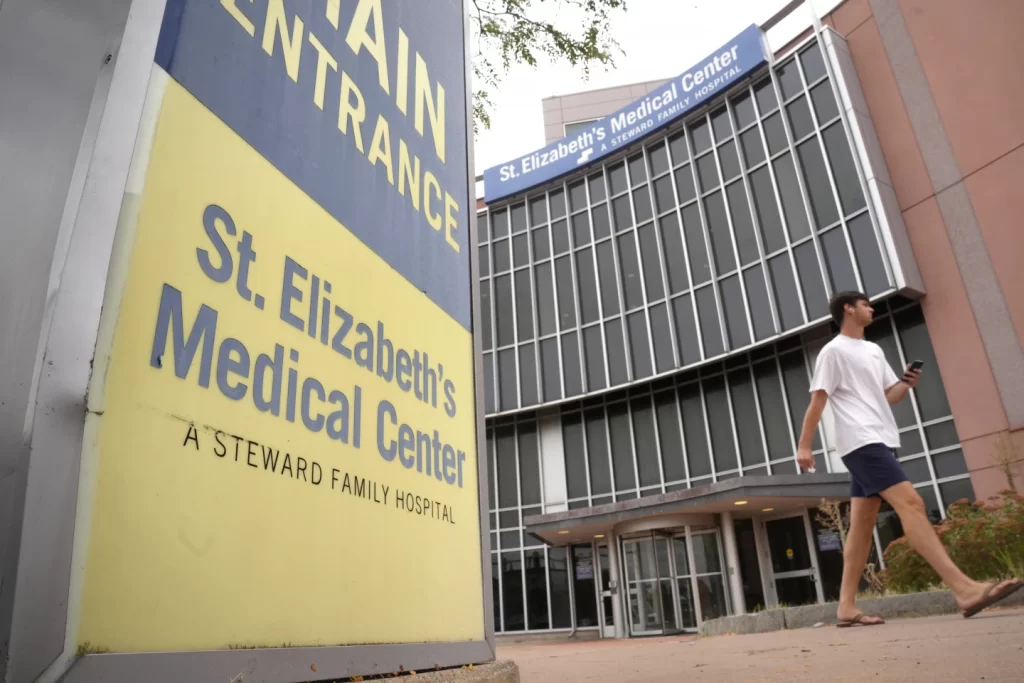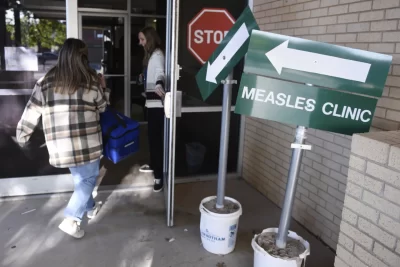
ASHEVILLE, N.C. — President Joe Biden was set to survey the devastation in the mountains of Western North Carolina on Wednesday, where exhausted emergency workers continued to work around-the-clock to clear roads, restore power and cellphone service, and reach people left stranded by Hurricane Helene. The storm killed at least 133 people and hundreds more were still unaccounted for on Monday night, four days after Helene initially made landfall.
Meanwhile, election officials across the South were making emergency preparations to ensure displaced residents would be able to vote in the upcoming presidential election.
Officials in the hard-hit tourism hub of Asheville said their water system suffered “catastrophic” damage that could take weeks to fully repair. Government officials, aid groups and volunteers were working to deliver supplies by air, truck and even mule to the town and surrounding mountain communities. At least 40 people died in the county that includes Asheville.
The North Carolina death toll included one horrific story after another of people who were trapped by floodwaters in their homes and vehicles or were killed by falling trees. A courthouse security officer died after being submerged inside his truck. A couple and a 6-year-old boy waiting to be rescued on a rooftop drowned when part of their home collapsed.
Rescuers did manage to save dozens, including an infant and two others stuck on the top of a car in Atlanta. More than 50 hospital patients and staff in Tennessee were plucked by helicopter from the hospital rooftop in a daring rescue operation.
How some of the worst-hit areas are coping
The storm unleashed the worst flooding in a century in North Carolina. Rainfall estimates in some areas topped more than 2 feet (61 centimeters) since Wednesday, and several main routes into Asheville were washed away or blocked by mudslides. That includes a 4-mile (6.4-kilometer) section of Interstate 40 that was heavily damaged.
Joey Hopkins, North Carolina’s secretary of transportation, asked people on Monday to stay off the roads.
“The damage is severe, and we’re continuing to tell folks if you don’t have a reason to be in North Carolina, do not travel on the roads of western North Carolina,” Hopkins said at a news conference. “We do not want you here if you don’t live here and you’re not helping with the storm.”
At an Ingles grocery store in Asheville, Elizabeth Teall-Fleming was standing in line with dozens of others waiting to get inside and hoping to find some non-perishable food, since they have no power. She planned to heat up some canned food over a camping stove for her family.
“I’m just glad that they’re open and that they’re able to let us in,” she said.
Teall-Fleming said she was surprised by the ferocity of the storm.
“Just seeing the little bit of news that we’ve been able to see has been shocking and really sad.”
In one neighborhood, residents were collecting creek water in buckets to flush their toilets.
Others waited in a line for more than a block at Mountain Valley Water to fill up milk jugs and whatever other containers they could find with drinking water.
Derek Farmer, who brought three gallon-sized apple juice containers, said he had been prepared for the storm but now was nervous after three days without water. “I just didn’t know how bad it was going to be,” Farmer said.
Helene roared ashore in northern Florida late Thursday as a Category 4 hurricane and quickly moved north. The storm upended life throughout the Southeast, where deaths were also reported in Florida, Georgia, South Carolina and Virginia. Officials warned that rebuilding would be lengthy and difficult.
Federal Emergency Management Agency officials said Monday that shelters were housing more than 1,000 people.
North Carolina Gov. Roy Cooper took an aerial tour of the Asheville area and later met with workers distributing meals.
“This has been an unprecedented storm that has hit western North Carolina,” he said afterward. “It’s requiring an unprecedented response.”
Worries about the presidential election
Karen Brinson Bell, executive director of the North Carolina State Board of Elections, said during an emergency board meeting on Monday that they are looking at options for voters in the hardest-hit counties. She planned to provide more information at a Tuesday news conference, including how someone could declare “natural disaster” as their reason for not being able to provide a photo ID.
Election employees across Georgia returned to work even as some offices faced power outages, limited internet and infrastructure damages.
In Lowndes County, staff at the local board of elections were working off of two computers instead of the usual eight, said election supervisor Deb Cox. The office is also without wifi.
“We’re fully up and running as of this morning,” said Cox. “It’s just slower than normal because we have less resources.”
In Columbia County, poll worker training will still begin this week, said Nancy Gay, the county’s elections director, but she may have to change the location because of the power outage.
“Our poll workers are being affected,” Gay said. “They don’t have power. They don’t have gas. You’ve got to allow the workers time to process everything and try and get a plan in place before I can really expect them to come and show up for training.”
Mark Ard at the Florida Secretary of State’s office said the Division of Elections is recommending that local elections supervisors reach out to U.S. Post Office officials to discuss a mitigation plan for ballot mailing, delivery, and return.





